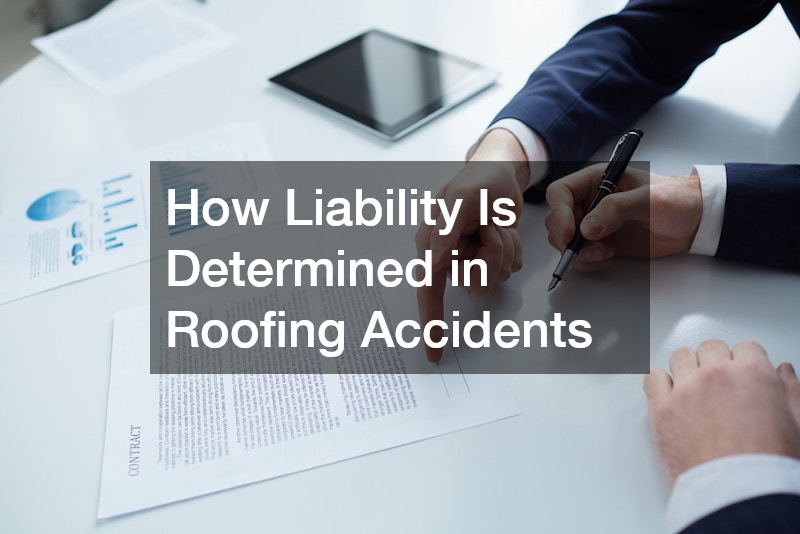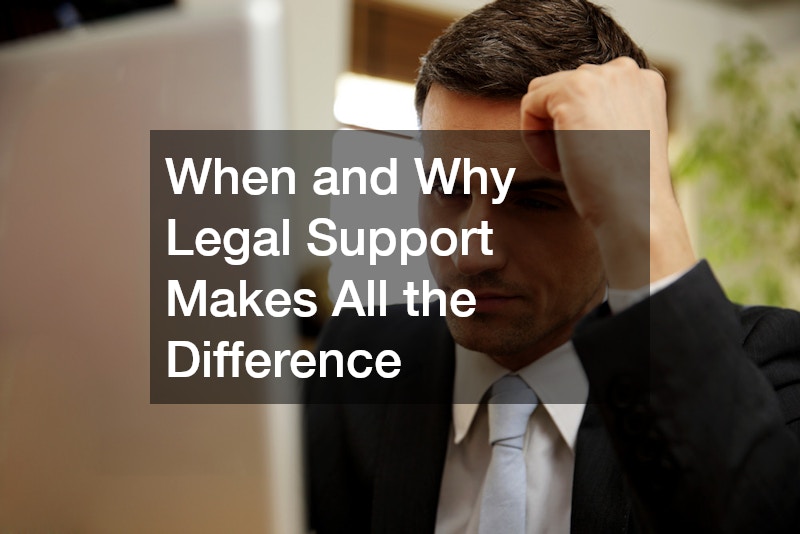
What to Expect in a Falling Off a Roof Settlement: A Lawyer’s Guide
Introduction
Falling off a roof isn’t just a workplace hazard—it’s often a life-altering event. The risk is ever-present for seasoned roofers, construction workers, and subcontractors, but it also affects homeowners, laborers, and anyone lending a hand during a roof replacement or repair. In a split second, a routine task can lead to devastating consequences: broken bones, spinal injuries, traumatic brain damage, or worse. These injuries not only bring intense physical pain but can also trigger long-term financial instability and emotional trauma that ripples through every part of your life.
The aftermath of such an accident can feel overwhelming. Hospital bills start arriving before you’ve even fully grasped the extent of your injuries. Time off work—whether temporary or permanent—can put your income on hold, and uncertainty about who’s responsible can create added stress. Many victims quickly discover that the road to recovery is as much legal as it is medical. Without guidance, it’s easy to miss out on the full compensation you’re entitled to, especially when dealing with reluctant employers, uncooperative insurance companies, or a confusing web of contractors and liability concerns.
Navigating a roofing claim involves far more than simply filling out a few forms and waiting for a settlement check. The process demands a deep understanding of liability laws, safety regulations, injury documentation, insurance tactics, and settlement negotiations. Mistakes—whether procedural or strategic—can significantly reduce the amount you receive or even jeopardize your claim entirely.
This guide is here to help you make sense of it all. We’ll walk through every key element of a falling off a roof settlement: the immediate steps you should take after an accident, how to build a strong case, who may be held liable, how compensation is determined, and what to expect as your claim progresses. By the end, you’ll have a clearer picture of your rights, your options, and how to move forward with the support you need to recover physically, emotionally, and financially.
Understanding Your Rights After a Serious Fall

When a fall from a roof occurs during a work-related task, you have legal rights regardless of who was at fault. Most states require employers to carry workers’ compensation insurance, which can cover medical expenses, rehabilitation, and lost wages. But not all cases are straightforward.
Many workers, especially those employed by subcontractors or small roofing companies, don’t realize they may be eligible for compensation beyond what their employer initially offers. A local employment lawyer can help determine whether your case also qualifies as a personal injury lawsuit, particularly if negligence, unsafe equipment, or faulty materials contributed to the fall.
Even if you’re an independent contractor or day laborer, you may still be entitled to benefits or damages. The key lies in how your employment relationship is classified, who controlled the work environment, and how safety standards were—or weren’t—followed.
Who’s Responsible When Safety Measures Fail?
In roofing-related accidents, determining responsibility is often more complicated than pointing fingers. Job sites may include general contractors, subcontractors, and multiple crews. Some companies may outsource labor or rely on unlicensed roofers, making accountability murky.
If the roof contractor failed to follow OSHA regulations or didn’t provide appropriate safety gear, such as harnesses or scaffolding, they may be liable. Similarly, if the property owner requested roofing work without ensuring a safe working environment, they could share responsibility.
A knowledgeable lawyer will investigate the details of your accident to identify all potentially liable parties. This might include inspecting whether ladders, anchors, or guardrails were up to code and reviewing prior incidents involving the same roof contractor or roofing crew.
The First Steps to Take After an On-the-Job Injury
Immediately after a fall, your first priority should be seeking medical care—even if you believe the injuries are minor. Some serious conditions, like internal bleeding or spinal trauma, may not be immediately apparent.
Once stabilized, you must report the injury to your employer or supervisor as soon as possible. Waiting too long can hurt your claim or even lead to the denial of benefits. Many states have short windows for notifying employers of a workplace injury, so it’s vital not to delay.
It’s also important to avoid making recorded statements to insurance adjusters without first speaking to a local lawyer. Insurance companies may try to minimize your injuries or suggest that your actions contributed to the accident. A lawyer can help you craft a clear, accurate account that protects your legal position.
Gathering Evidence That Strengthens Your Case
In any roofing claim, strong evidence can make or break the outcome. Photographs of the job site, the roofing equipment used, the height and condition of the roof, and any visible safety violations can help establish liability.
Eyewitness statements from coworkers or nearby contractors are also valuable. If you noticed missing safety gear, slippery surfaces, or unstable scaffolding, document that information while it’s fresh.
A lawyer familiar with roofing accident claims may bring in experts to examine weather conditions, site setup, and compliance with safety regulations. These details not only bolster your claim but can increase your potential settlement value.
Medical Documentation: What Matters Most
Your medical records are one of the most important aspects of any injury claim. Every diagnosis, treatment plan, surgery, and follow-up visit contributes to your compensation.
Be sure to follow all recommended treatments and attend all appointments. Gaps in treatment or missed visits may be used by insurers or opposing attorneys to argue that your injuries aren’t as severe as claimed.
You should also keep records of medical bills, prescription costs, physical therapy, and mileage to appointments. A workers compensation lawyer can ensure all your damages are fully documented and included in your claim.
How Liability Is Determined in Roofing Accidents

Establishing liability in a fall from a roof requires a detailed understanding of the worksite, the employment structure, and safety standards. Was the roof surface unstable? Did the contractor provide adequate training? Was protective equipment available and in good condition?
Sometimes the answer is yes, but negligence still exists. For example, if a roof contractor provided a safety harness, but the anchor point failed due to poor installation, they could still be liable. Likewise, if a roofer ignored safety rules under pressure to meet deadlines, the employer might be partially responsible for creating an unsafe work culture.
An experienced lawyer will analyze contracts, safety reports, and witness accounts to determine where fault lies and how much each party may be liable for in a settlement.
When Employers and Contractors Disagree
Disputes often arise between employers and contractors, especially when it’s unclear who is responsible for the injured party. Some roofing companies classify their workers as independent contractors to avoid paying workers’ comp premiums—an issue that can complicate your claim.
When different parties blame each other, the injured worker can get caught in the middle. That’s why involving a local lawyer early in the process is crucial. They can manage communications, demand evidence, and prevent stalling tactics often used to delay or deny compensation.
In many cases, employers and contractors may settle their disputes behind the scenes, but you still need someone advocating for your best interests to ensure you aren’t left out of a fair resolution.
Navigating Insurance Claims with Confidence
Insurance companies play a central role in roofing accident settlements. Unfortunately, their goal is often to minimize payouts. Even if you’re dealing with a legitimate roofing claim under workers’ comp, adjusters may undervalue your injury or argue that your actions contributed to the fall.
Having a workers’ compensation lawyer on your side changes the dynamic. Lawyers know the tactics insurers use and how to challenge unfair assessments. They can also help file appeals if your claim is denied or delayed.
Additionally, if your injuries were caused by a third party—such as a negligent roof contractor or equipment manufacturer—you may be able to pursue a separate personal injury claim, even while receiving workers’ comp benefits.
Common Pitfalls That Can Reduce Your Settlement

Several missteps can weaken your claim and reduce your settlement, including:
-
Delaying medical care or failing to follow treatment recommendations
-
Not reporting the injury promptly or in writing
-
Giving inconsistent statements about how the fall occurred
-
Accepting an early settlement without understanding the long-term impact of your injuries
-
Posting on social media about physical activities that contradict your claimed injuries
A personal injury lawyer will help you avoid these traps and guide you through each step to protect your claim.
The Timeline of a Typical Injury Case
Each roofing accident claim unfolds at a different pace, depending on injury severity, dispute complexity, and court schedules. However, most follow a general timeline:
-
Immediate medical care and injury report
-
Initial insurance filing and employer notification
-
Investigation by legal counsel and insurers
-
Settlement negotiations or formal legal action
-
Final resolution via settlement or trial
While some straightforward workers’ comp cases resolve in a few months, complex cases involving multiple parties can take a year or more. Your local lawyer can provide an estimated timeline based on your unique circumstances.
What Determines the Value of Your Compensation
Settlement amounts vary significantly and depend on several factors:
-
Medical expenses, including surgeries, rehab, and medications
-
Lost wages and diminished future earning capacity
-
Pain and suffering, both physical and emotional
-
Long-term disability or disfigurement
-
The degree of negligence involved
If you suffered a catastrophic injury, such as paralysis, traumatic brain injury, or permanent loss of mobility, your case will likely command a higher settlement. A lawyer with experience in roofing claims will calculate a comprehensive estimate and fight for every dollar you deserve.
Working with Professionals Who Know the Industry
Roofing cases are different from slip-and-falls or car accidents. They involve complex construction laws, unique safety standards, and often, multiple liable parties. That’s why it’s essential to work with a local lawyer or law firm that understands the roofing industry.
These professionals know how to deal with roof contractors, how to evaluate unsafe work conditions, and how to work with vocational experts who can speak to your ability—or inability—to return to roofing work.
When and Why Legal Support Makes All the Difference

Some people are hesitant to call a lawyer, assuming they can handle the claim themselves. However, personal injury law is complex, and mistakes can cost you tens of thousands of dollars in benefits and compensation.
Whether you’re dealing with a difficult employer, an uncooperative insurance company, or conflicting reports about the accident, a qualified workers’ compensation lawyer or personal injury attorney can guide you through every hurdle.
Their job isn’t just to fight for compensation—it’s to give you peace of mind, so you can focus on healing.
Conclusion
Falling off a roof is traumatic enough. The injuries, emotional stress, and financial strain can turn your life upside down in an instant. Navigating the legal maze that follows shouldn’t add to your burden—it should ease it. Whether you’re dealing with medical bills, loss of income, or uncertainty about who is responsible, knowing that you don’t have to go through it alone makes all the difference.
From understanding your rights to calculating your full compensation, every step of the process benefits from expert legal guidance. An experienced lawyer not only protects you from unfair insurance practices but also ensures that no detail is overlooked—whether it’s identifying all liable parties, preserving critical evidence, or fighting for long-term benefits you may not realize you’re entitled to.
Roofing accidents often involve complex layers of responsibility, especially when multiple contractors, subcontractors, or third-party equipment providers are involved. A local employment lawyer or workers’ compensation lawyer who understands the nuances of roofing work can help you navigate these complexities with clarity and confidence.
Ultimately, your focus should be on healing, not fighting legal battles or deciphering insurance jargon. With the right legal support, you can feel empowered to pursue justice, hold negligent parties accountable, and secure the financial recovery you need to rebuild your life.
If you or someone you love has suffered from a roofing accident, don’t wait. Reach out to a trusted local lawyer who can review your case, explain your options, and begin the process of securing the compensation you deserve. The road to recovery may be long, but you don’t have to walk it alone.

